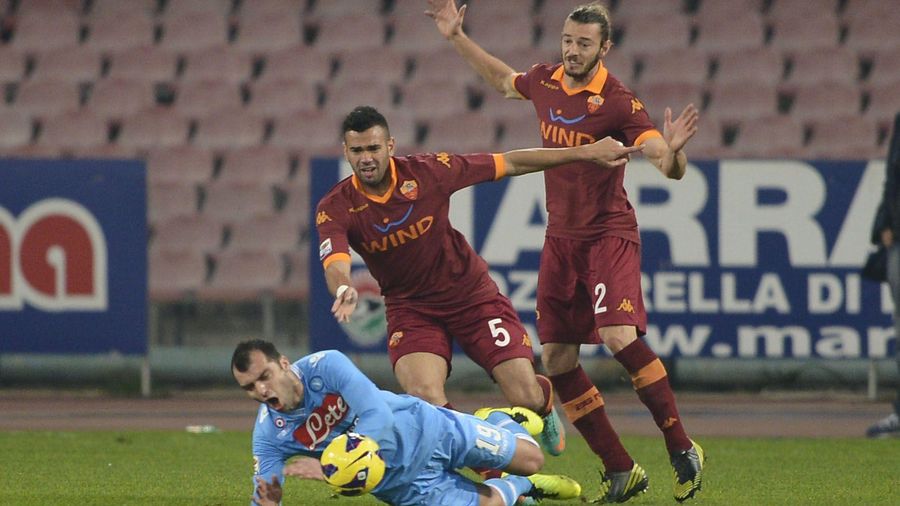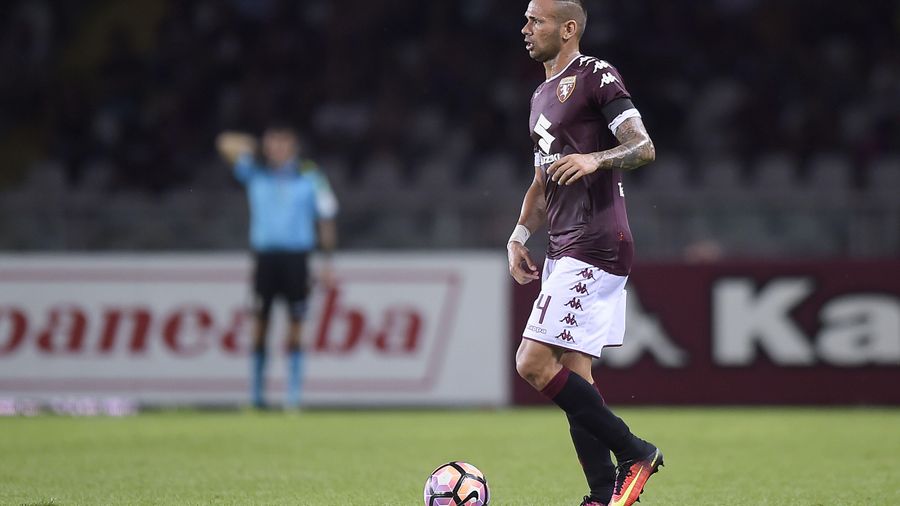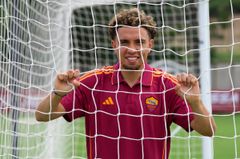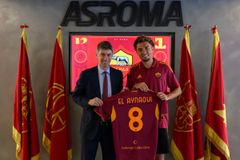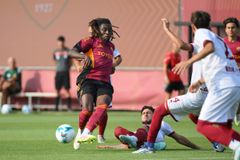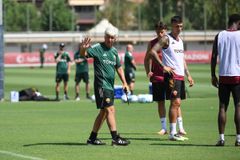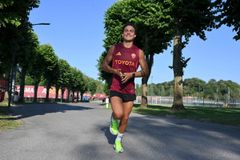
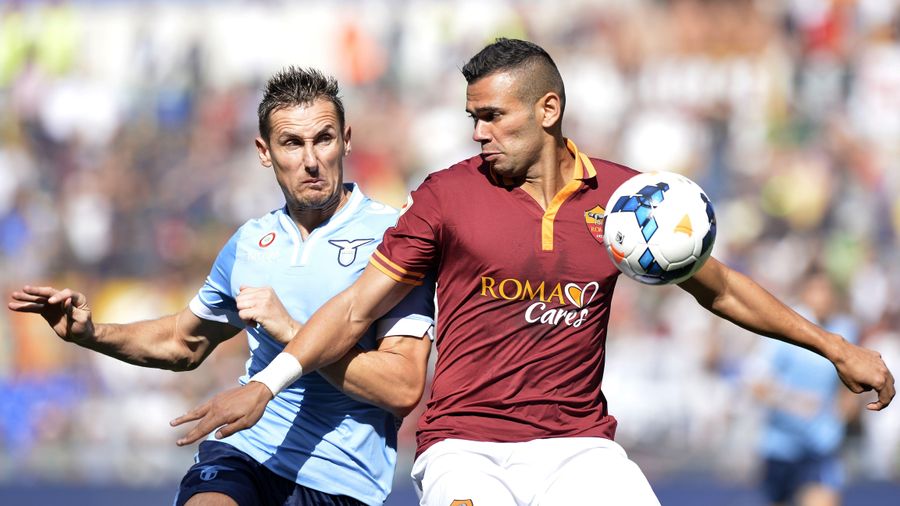
He was rewarded for his exceptional performances with a new contract, just two years after signing his first. Then a shock diagnosis sent him on a different path, plummeting from the heights he had reached through sheer hard work and to which he would never to return.
It all happened in a matter of months, after a serious health problem showed up following Roma’s match at Empoli in 2014. Six years have passed since then and Leo has been back in Brazil for a few years.
Nowadays he plies his trade for Vasco da Gama and is enjoying his career again.
“Things could have gone very differently at Roma”, he says. “But I had to battle with an opponent who was stronger than me…”
What do you remember about that day at the Stadio Castellani in Empoli, in 2014?
“I could say it was my last ‘real’ match for Roma. I played the first half and we took the lead through [Radja] Nainggolan. I was substituted at half time and I remember doing a flash interview with Sky before heading into the dressing rooms. That’s when the problems began.”
Tell us about it.
“I felt dizzy and had a general feeling of malaise. The doctors took me to hospital to find out what it was. The diagnosis was devastating: I had a brain cavernoma. I instantly felt lost and demoralised. I didn’t know what to think or do. It all came out of the blue, although looking back perhaps there had been a warning sign before then.”
What was that?
“I remembered having this really strange pain in my legs during the US tour the summer before. It was strange because I rarely suffered from muscle problems. The doctors told me there was no link with what happened afterwards. It was certainly the toughest time of my life. Roma looked after me, though. They protected me and gave me all the time I needed to get back to playing, providing me with everything I needed to recover. They did everything a great club should do."
It’s a club you’re still very fond of, right?
“I’ll always be grateful to Roma. When [Walter] Sabatini bought me from Corinthians I was a lucky kid who has already realised lots of my dreams as a pro footballer. I’d won the Brazilian league, the Copa Libertadores and I’d been called up to the Selecao. After a year settling in at Roma, in my second year [Medhi] Benatia and I were up there as one of the best three central defensive partnerships in Europe. I did everything I could to get back to the level I reached in 2013-14 – absolutely everything – but it just wasn’t possible.”
The year after it happened, you did play a few games for Roma, though.
“I played five with [Rudi] Garcia and a did pretty well in a couple of them. When [Luciano] Spalletti joined he said at his press conference that he was counting on me and played me at the heart of defence against Verona. I had a really bad game personally and we drew it. After that match, Luciano told me I would no longer be a first-choice player. I never played for Roma again.”
Are you angry with Spalletti?
“I have my own life philosophy. I never carry feelings from my work into my personal life. And I never bear a grudge against anyone, not even him. I respected his decision, which was a professional decision. I know he had to take decisions for the good of Roma. Football is a job and things like that happen in the workplace.”
Did you ever speak to him again?
“When I joined Cagliari in 2017-18 and he was at Inter, we spoke together on the pitch before the match and cleared things up – there were no hard feelings.”
You joined Torino on loan in 2016-17 and that’s when you faced Roma as an opponent for the first time.
“In the first game, yes. We won and Torino hadn’t beaten Roma for years. I had mixed feelings that day. On the one hand I was happy to meet my old club and say hello to my old team-mates and on the other I wanted to prove that they were wrong to let me leave. It went well that day. Afterwards I had some physical problems and my time at Torino ended quickly.”
Francesco Totti scored Roma’s consolation goal that day – his last in Serie A. Number 250.
“I remember it well: a penalty. He and [Daniele] De Rossi were the perfect team-mates to have in the dressing room. It was a huge honour to play on the same side as them. They’re two very different people who both represent the team and the city. Just mentioning them makes you think of Roma.”
Let’s get back to the present. You tested positive for Covid a while back.
“Yes, but I was asymptomatic. I’m still being careful though. They say that being asymptomatic doesn’t grant you immunity – at least that’s what the experts in Brazil say. It’s complicated here. The government opened up everything for a while and lots of people are suffering. Hopefully when we get the vaccine next year – in April here – it will all become a bad memory.”
How have you spent your time with all the restrictions?
“At home with my family. I have space outdoors where I can train. It was hard and things are still difficult now. I haven’t seen my parents for over a year. My dad is vulnerable. I have a job, I train and I travel. I’m afraid of passing it on to him so I avoid meeting him. They’re in Sao Paulo and I’m in Rio de Janeiro – 700 kilometres apart. I always used to see my dad when I was at Roma – he was with me every day. But those great times are gone for good now.”

 Tickets
Tickets
 Shop
Shop














